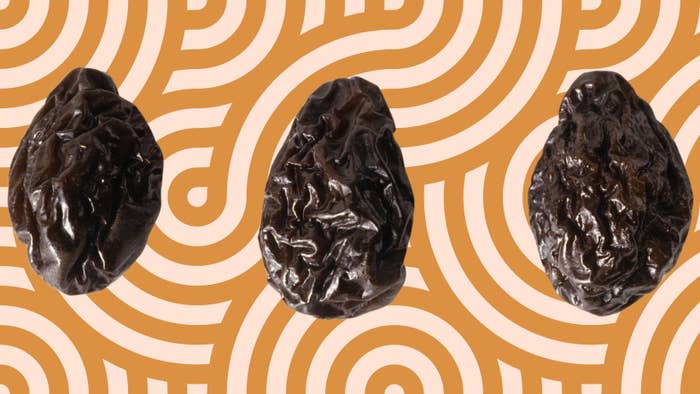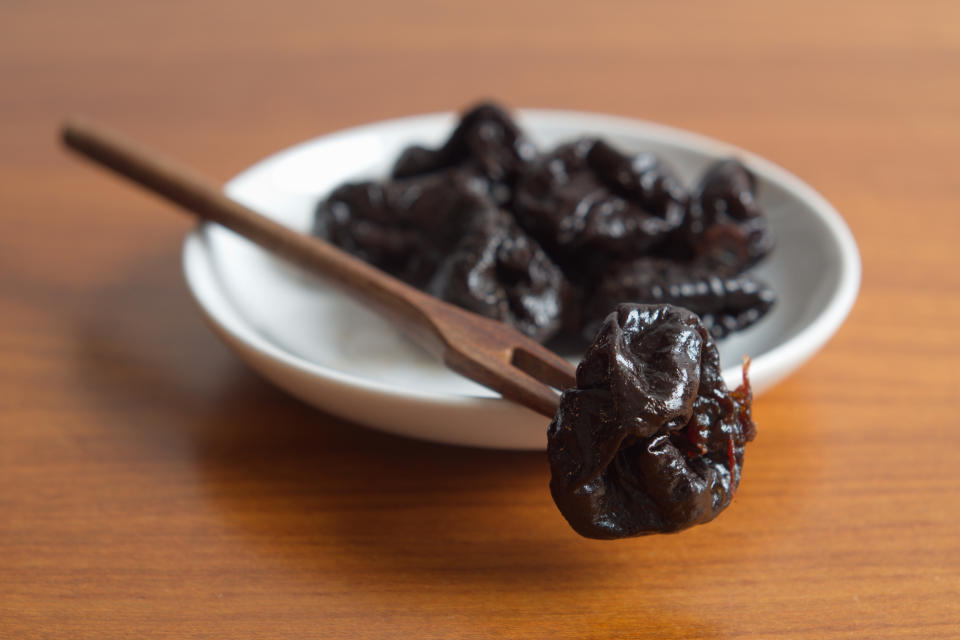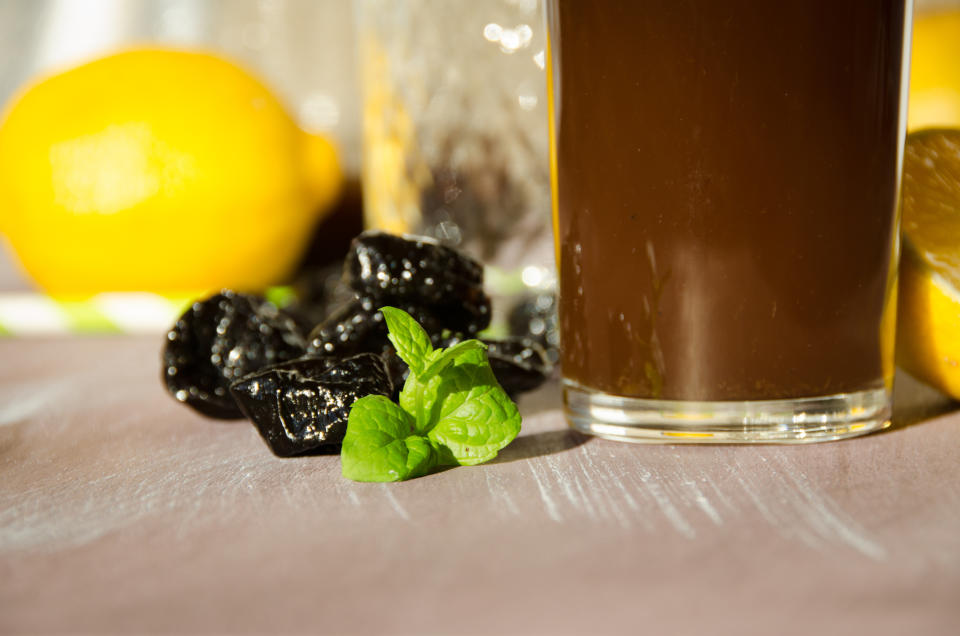Do Prunes Make You Poop Right Away? And Other Constipation Questions, Answered By Experts

If you have trouble going number two, chances are someone will suggest downing a few cups of prune juice or eating a handful of prunes to get things going.
It may sound like an old wives tale, but using prunes to relieve constipation is actually endorsed by doctors. “Prunes have been an at-home remedy for constipation for generations, and for good reason. They work,” said Dr. Nathan Wood, an instructor of medicine at Yale School of Medicine.
Prunes help you go in three different ways.

Prunes are so effective at treating constipation because they have three different components that help you poop: Two types of fiber, plus fermentable sugars that each help relieve constipation differently, Wood explained.
First, prunes contain soluble fibers. These “absorb water, forming a gel-like substance that softens stools, making them easier to pass,” said Dr. Alexander Jow, a gastroenterologist at Kaiser Permanente Falls Church Medical Center in Falls Church, Virginia.
Second, prunes contain insoluble fiber, which “is plant material that moves through our digestive tract pretty much intact,” Wood explained. Since it “doesn’t get absorbed or completely broken down by our stomach and intestines,” it creates bulk that “helps to push things through your intestines faster,” he said.
Third, prunes contain sorbitol, which is a natural fermentable sugar. “These sugars have a mild laxative effect on your digestive system by drawing water into the intestines to soften stools and stimulate bowel movements,” Jow said.
Although it’s possible to get fiber and sorbitol from other foods, prunes are a uniquely good choice because “one prune contains approximately 0.7 grams of fiber, a concentrated amount for such a small fruit,” Jow said.
What’s more effective: Whole prunes or prune juice?

Both prune juice and whole prunes are effective in treating constipation, Jow said. However, there are some differences to consider.
Whole prunes have more fiber because the juicing process removes some. An 8-ounce serving of one cup of prune juice contains about 2.5 grams of fiber, while a serving of 10 prunes contains about 6 grams of fiber. Moreover, “whole prunes have double the amount of sorbitol in the same serving size compared to prune juice,” Jow said.
Another advantage of whole prunes over prune juice is that prune juice has more sugar and calories than dried prunes. While this may not make a difference if you only consume prune juice once in a while, it can add up over time, Jow cautioned.
According to Jow, the “bottom line” is that both prune juice and dried prunes will help you go. If you prefer the taste of prune juice, you will still get the laxative benefits prunes provide, but whole prunes are a healthier choice, and you won’t need as many servings to get the same amount of fiber and sorbitol.
How long does it take for prunes to relieve constipation?
It will vary from person to person, ranging from “a few hours to a day,” Jow said.
To help things along, Jow advised, “It is important to drink plenty of water while taking prunes to stay hydrated and help enhance the effectiveness of the prunes and the function of the digestive system.”
How many prunes do you need to get things going?
The number of prunes you need to relieve constipation “varies depending on age and severity,” Jow said. To start, he suggests giving children one to two prunes or 2-4 ounces of prune juice a day. For adults, Jow recommends starting with three to five prunes or half a cup of prune juice daily or twice daily.
Can you have too many prunes?
When backed up, drinking an entire container of prune juice or down handfuls of dried prunes may be tempting. That might be especially true if the recommended amounts aren’t working for you. However, Jow urges caution.
“It is possible to eat too many prunes,” leading to unwanted side effects, he said. “Excess fiber can cause gastrointestinal discomfort, bloating, gas and even diarrhea. Sorbitol is a natural laxative, so consuming too large of a quantity can also cause increased bowel movements and diarrhea,” Jow explained.
Because everyone reacts differently to prunes, Jow suggests starting with a small amount and gradually increasing consumption until you get the desired effect.
Wood also cautions that because prunes, like all dried fruit, are high in sugar and calories, those with “advanced or uncontrolled diabetes” use a sugar-free over-the-counter laxative. This article originally appeared on HuffPost.


